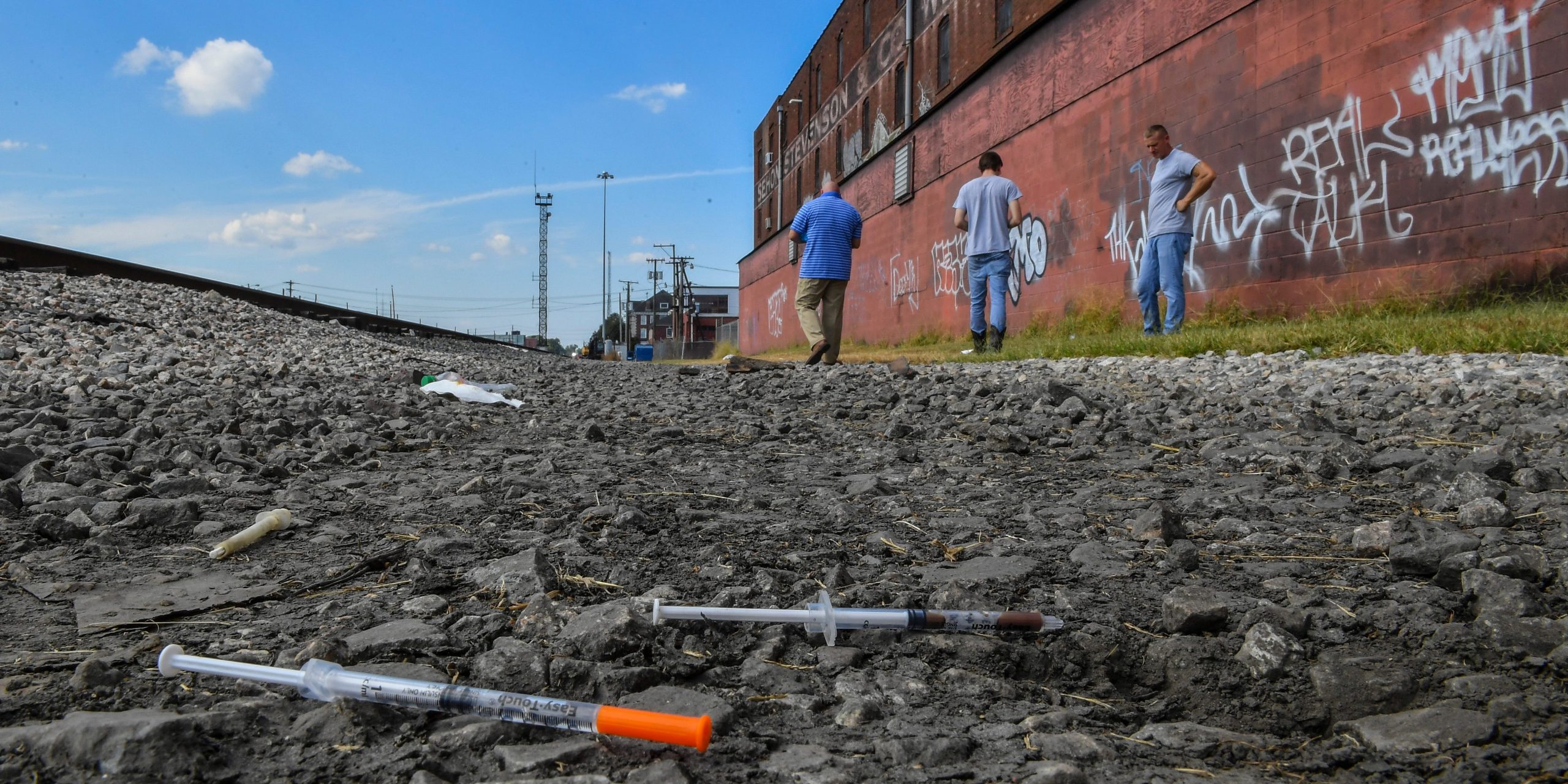
Photo by Ricky Carioti/The Washington Post via Getty Images
- Charleston, West Virginia, currently has the "most concerning" HIV outbreak in the country.
- Despite the spike, lawmakers in the Senate passed a bill essentially blocking needle exchanges.
- Experts and the CDC have embraced the public health measure as a way to mitigate disease.
- Visit Insider's homepage for more stories.
West Virginia's capital city, Charleston, is currently facing a dangerous surge in HIV cases related to intravenous drug use. But state lawmakers have bucked public health recommendations by passing a bill that would essentially halt needle exchanges across the state – disrupting one of the most effective ways to combat the alarming outbreak.
Demetre Daskalakis, the HIV prevention chief at the Centers for Disease Control and Prevention told BuzzFeed News the outbreak, which has spread to 50 people, is "the most concerning HIV outbreak" in the country right now.
"It is possible the current case count represents the tip of the iceberg," she told the outlet.
The 2018 cancellation of a needle exchange program in the state, is being blamed, in part, for the surge in HIV cases, which is clustered around the cities of Charleston and Huntington, according to the Associated Press.
Needle exchange programs, which make clean needles available to intravenous drug users unable to fully quit, are a standard public health response recommended by the CDC to control disease outbreaks among users. Public health research shows they work at mitigating outbreaks and the Trump administration even expressed support for the measure in 2019.
But instead of embracing needle exchanges, lawmakers in the state legislature are moving to block, and even criminalize, the public health program.
Last week, the West Virginia Senate passed Bill 344 establishing a licensing program within the state Department of Health and Human Resources from which all new and existing needle exchange programs would have to apply to receive a license, according to Charleston Gazette-Mail. Programs would also need "a letter of support" from both the county commission and county sheriff, and programs that operated without a license could face criminal penalties.
Health experts say the bill - which is currently under consideration in the Republican-controlled House - would effectively end all syringe exchanges in the state at a time when they are needed more than ever.
In order to receive a license, programs would be required to offer full harm-reduction services, including HIV and STD testing, and would require a one-for-one needle return, a rule activists say is unrealistic for many who use the exchanges.
Despite their positive reputation among most public health experts, needle exchanges remain controversial in many states, with opponents arguing they lead to dangerous needle litter in communities.
Concerns about needle safety are legitimate, Leo Beletsky, a public health law expert at Northeastern University told BuzzFeed, but outlawing exchanges is a "misguided" response, he said. Instead, expanding exchange services could help combat both the HIV outbreak and potential needle litter, the expert said.
Beletsky told the outlet exchanges should extend their hours and remain open all week as well as create more places to dispose of used needles. Decriminalizing needle possession could also go a long way toward decreasing needle litter.
West Virginia has long led the nation in drug-overdose deaths, according to the AP. In 2018, West Virginia's rate of drug-overdose deaths per 100,000 residents was more than double the national average.
Dr. Sally Hodder, a West Virginia University infectious disease expert told the outlet the opioid epidemic and HIV clusters are "so interconnected" they should be looked at and treated as one larger issue.
"In places such as West Virginia, where the collapse of the coal mining industry and extreme poverty have exacerbated the opioid epidemic, decriminalizing substance abuse, providing clean, safe places for syringe service programs and other interventions, and offering comprehensive HIV prevention, care and treatment services are all essential to ending these intertwined epidemics," Hodder told the outlet.